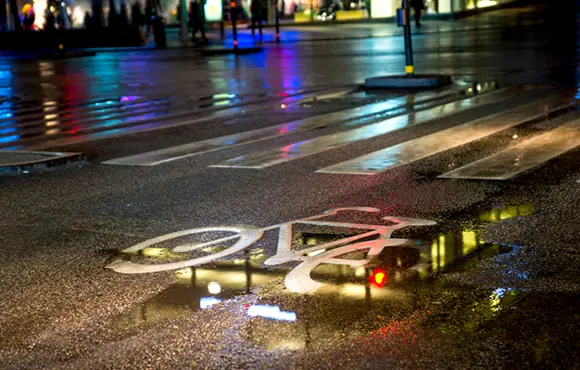How do you know how many calories to eat each day when you're training? The best way to know for sure is to have your Basal Metabolic Rate (BMR) tested. There are both machines and formulas that can determine this number. Your BMR is essentially how many calories your body burns daily simply to live. This is your absolute baseline.
For instance, if your BMR is 1300 calories per day and you burn an additional 700 calories that day in exercise, you now have a bank of approximately 2,000 to sustain your current weight. Consult with a registered dietitian or nutrition coach to administer these tests.
We Don't Train How We Race
During a marathon or any other endurance event, you need to keep your fuel tank full in order to stay in motion for multiple hours. This requires taking in calories every 45 to 60 minutes. So, over the course of a marathon, you may eat a minimum 500 to 600 calories.
But what happens if you don't train this way? Do you ever go out for a 13 to 15 mile run and take in zero calories or even just the bare minimum because you know you can? This may sabotage you on race day if you don't train your stomach to take in those extra calories.
"With athletes who are training or racing in events that are longer than 1.5 hours, it's very important that you have a nutrition strategy for both training and racing," Hall says. "Incorporate your sports nutrition into your training to determine what works well for you."
This is where individual tastes and convenience come into play. Some athletes rely on readily available liquid calories and gels, while other athletes prefer easily digestible real foods like bananas, dates and mashed sweet potatoes.
Expert Tips: If training less than an hour, you really don't need anything more than water. Stay away from the sugary "energy" drinks. How much should you consume? Start with consuming 30 to 60 grams of carbohydrates per hour and then listen to the cues from your body. Ultimately the amount you need may depend on your size and the distance you are covering.
We Are Dehydrated
Dehydration can certainly diminish your performance and hinder your training. In fact, even losing just 2 percent of your body weight can be detrimental. The first sign of dehydration is usually the sensation of being thirsty, and in many cases, that can be too late. A minimum of 16 ounces of water per hour is recommended and, depending on the climate and your event, you may need upwards of 20 to 32 ounces of fluid per hour.
It's important to note that your body also often confuses thirst for hunger, which can lead to overeating. If you're unsure, drink a glass of water before a meal to see if this helps curb your appetite.
- 2
- of
- 3








Discuss This Article